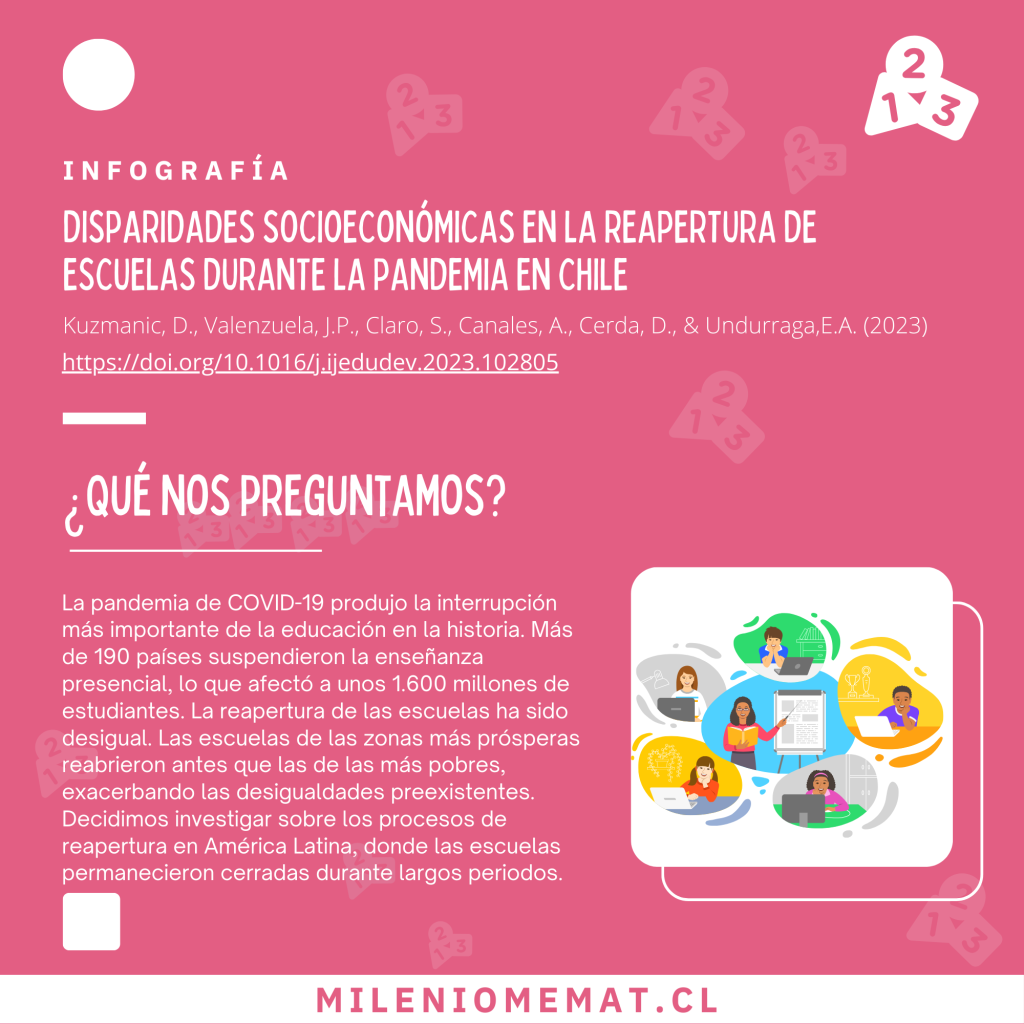The COVID-19 pandemic produced the most significant educational disruptions in history. More than 190 countries suspended face-to-face instruction, affecting approximately 1.6 billion students.
Category Archives: Infografías
Previous research provides evidence that developing a growth mindset (believing that one’s abilities can improve) promotes academic achievement.
Introducción: Este artículo investiga indicadores de las expectativas de carrera en el área STEM entre niños y niñas de educación básica en Chile, con un foco en el papel de las expectativas profesionales de los padres, las habilidades tempranas de los niños y niñas (comunicación, habilidades cognitivas, socioemocionales y funciones ejecutivas), y los efectos moderadores del género y el nivel socioeconómico de la familia.
Using data from 12 studies, we meta-analyze correlations between parent number talk during interactions with their young children (mean sample age ranging from 22 to 79 months) and two aspects of family socioeconomics, parent education, and family income.
This paper analyzes the purposes stated by a small sample of Chilean students, categorizing them according to their self-oriented, altruistic or hybrid characteristics, overcoming the dichotomy that is common in the literature, which includes only extrinsic and intrinsic purposes, or self-oriented and prosocial purposes.
Computer-based interventions aimed at helping students adopt a growth mindset have been designed and tested in high-income countries for several years.
Learning to read in children with Down syndrome is relevant because of the impact this skill has on learning and the development of autonomy.
We wondered whether a personalized book could increase parents’ perceptions of their children’s interest in books and reading, as well as engagement during book reading.
Nos preguntamos si existe una relación predictiva entre la motricidad gruesa, fina y
perceptivo-motriz y el desempeño de niños en edad preescolar en dos evaluaciones
de habilidad numérica simbólica (comparación de números simbólicos y solución de
problemas aplicados) controlando por habilidades numéricas simbólicas precursoras
y funciones ejecutivas.
El estudio buscó identificar las condiciones familiares y acciones escolares asociadas a la autoeficacia académica y el bienestar emocional de adolescentes durante la pandemia de COVID-19 en Chile. Es probable que el cierre de escuelas haya afectado el sentido de eficacia académica y bienestar emocional de los estudiantes al eliminar factores de apoyo como el apoyo de docentes y pares para tareas académicas y sociales.











